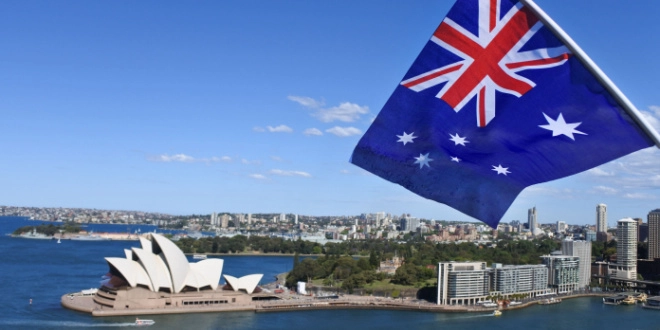A wealthy country with a vibrant sporting scene and established betting market, Australia is a land of opportunity for operators who can secure a foothold. 
This opinion was not lost on Rivalry CEO Steven Salz, who broke down how and why the esports operator has taken a keen interest in the sunny shores of Oceania from its Ontario, Canada headquarters.
The Australian appeal
Sports are a huge pastime in Australia – the country is well known worldwide for its love of Aussie rules football, cricket, both codes and rugby and as this year’s World Cup has demonstrated, even soccer.
However, although offering a traditional sportsbook, this is not Rivalary’s main area of focus. As Salz previously outlined to SBC, esports is the firm’s bread and butter, and the company has found a comfortable following in Australia for this product.
“The esports market there is more developed than in some other English-speaking markets, and is situated closely to the Asian League of Legends scene,” Salz remarked.
“There was just a lot of overlap between ourselves, Australia and other markets, which made a launch ideal. Also, on a more general level, Australians are just great people to work with! They have great humour, and we just found it really easy to connect with them.”
Although based in Canada, Rivalry had already amassed a strong following in Australia via its online marketing strategy, which has included partnerships with Twitch influencers and a focus on tapping into its teams’ passion for gaming and internet culture.
Salz continued: “From a purely economic perspective, Australia is a reasonable regulatory regime. It is easy to understand and is English speaking, which helped prior to launch as we already had a reasonable Australian following across some of our channels.
“We had lots of Australians engaging with the content via our website, but they were unable to register because we didn’t have a licence, and so it made a lot of sense to launch.”
Any outside observers paying close attention to the Australian betting scene lately would notice that the sector is coming under the political spotlight, despite regulatory stability.
Politicians have raised concerns around loot boxes in video games, whilst a parliamentary committee is currently undertaking an inquiry into the industry and its societal impact.
This has not been a cause of concern for Rivalry, however, as Salz detailed that the firm maintains confidence in its responsible gambling focus and transparent marketing strategy, referencing its experience in its debut market Ontario.
“I remember when Ontario first launched some people were concerned about advertising because they’d never had this type of gambling before, they weren’t used to seeing it in front of their face,” the firm’s CEO added.
“We weren’t in those channels and we avoid in-your-face marketing. It’s been tough for some operators’ affiliates to market in Ontario because, in the absence of being able to talk about a bonus or promotion, affiliates are finding it hard to discuss distinguishing features.
“This is the type of marketing we tried to avoid because, if you really entirely just use promotions or bonuses, what do you actually have? What is your business? The beauty of our strategy is that it is a little more casual in who we are trying to approach and acquire.”
By remaining ‘above board’ in its marketing strategy, Rivalry has been able to avoid the ‘marketing mistakes’ that have landed some other operators in Australia’s regulatory hot water in recent years.
Comparing countries
Having been an Isle of Man licenced firm from its foundation in 2018, and making its debut in April 2022 in Ontario before launching in Australia in July, Rivalry has seen its fair share of international development.
So how do the Australian and Canadian markets compare? From Rivalry’s sports-oriented perspective, the two have a similar fandom – although Salz noted that Australia’s may be more significant, but that neither had the same following as certain markets in Southeast Asia, South America and Europe.
“We knew going in that the fandom in Australia is not as large as in these countries, and that the market would require longer-term nurturing and growth. If there is one particular challenge in Australia, it is that the product is very different from our Rest of World product.
“Our Isle of Man and Canada products are broadly similar in marketing, although Ontario is a little more restricted on bonuses and promotions, but in Australia, there is no online in-play betting or online casino. It’s a unique challenge because it’s almost like having a different version of Rivalry that we have to operate and maintain.”
Salz explained that Rivalry intends to ‘keep pace’ on its Canadian and Australian operations before contemplating further international expansion, while also acknowledging the positive market conditions in European esports.
The CEO detailed Rivalry’s interest in European betting markets, but explained that the operator intends to ‘build up some pace first’, focusing on developing its business in its two established markets.
He said: “We’re very happy keeping pace where we are and finding the underlying strength of our current markets, but there are a handful of European countries that we think have a great esports audience and culture, as well as an influencer culture that would align with us.
“We’re just biding our time with it really, we want to see how 2023 works out, where different markets are heading and what access to capital looks like.”
Where next for Canada?
Lastly, SBC was able to glean some insights from Salz into developments in Rivalry’s home market of Canada, where the newly regulated betting market of Ontario has been grabbing international attention.
The CEO observed that Canada’s most populous province has been ‘one of the better markets per capita globally’ for some time, even during its grey market days.
“Ontario wanted to take a different approach on launch, allowing grey market operators to flip to the regulated side of things, whilst some other markets have said ‘if you don’t have a licence, you’re out’ and firms have had to reapply.
“What Ontario wanted to do was create the most competitive market possible and incentivise people to join the regulatory regime. However, there were already a lot of pre-existing operators here, and so market share just stayed the same and there wasn’t a lot of free room for people to grab.
“Our approach has been to be patient with how we spend money and let other licence holders go off and battle each other for share.
“We’ve seen people overpay for customer acquisition with their bonuses and promotions, and as I’ve said before, we’ve not participated in that game.”
As with Australia, Rivalry’s Canadian outlook will focus heavily on esports, and as the company’s Q3 trading update last month outlined, this has fuelled ‘decent growth’ month-by-month.
Salz argued that whilst Ontario is a ‘nascent esports market’ – in comparison to South America, Asia, and even Australia – Rivalry intends to practise patience and ‘build its business in a more measured way instead of swinging for the fences’.
“We’re going to continue to execute our strategy in the area we have an edge, even if it’s a small, niche market at the moment,” he concluded.
Click here to read part one of SBC’s interview with Steven Salz – breaking down the Rivalry’s marketing approach and business model









